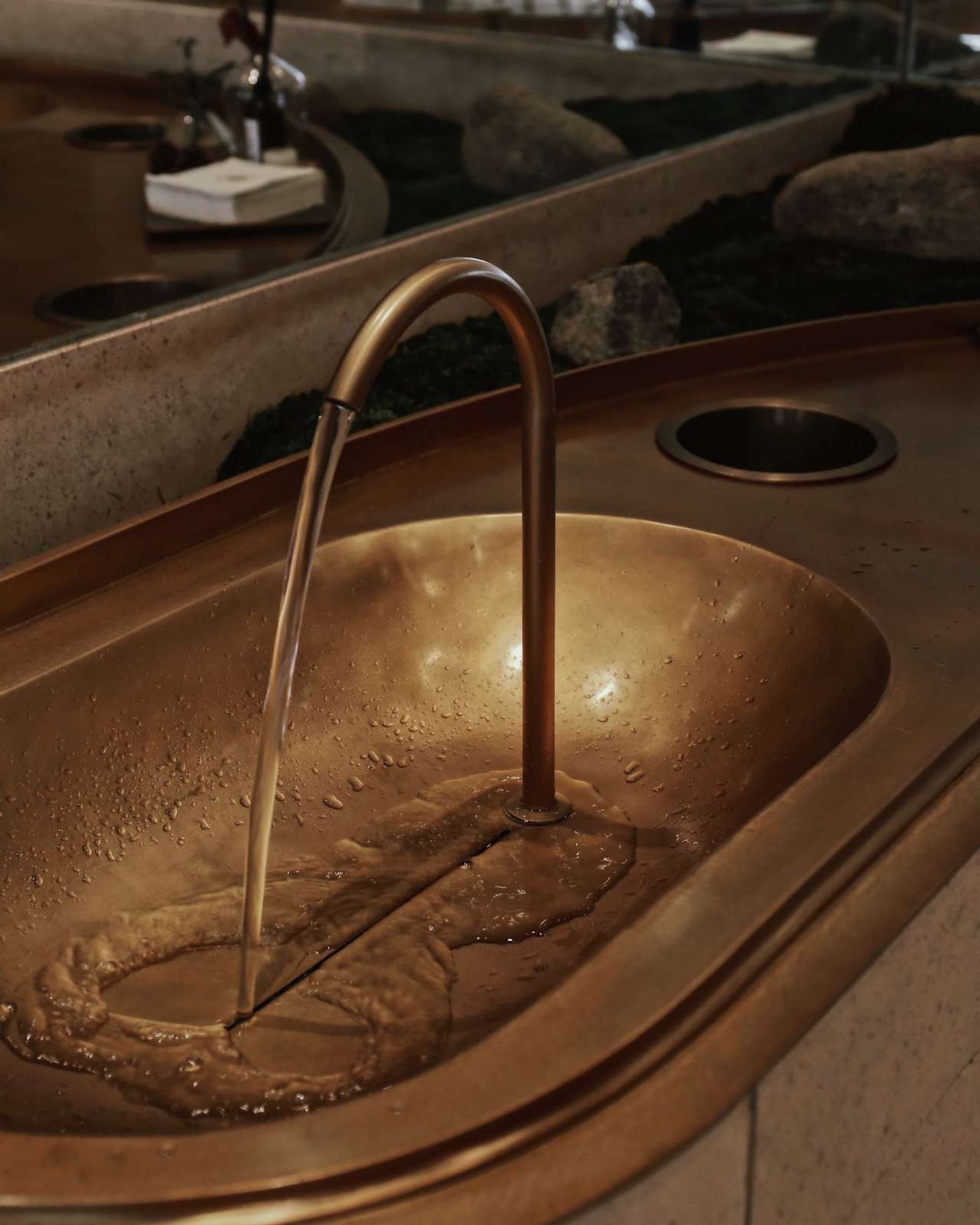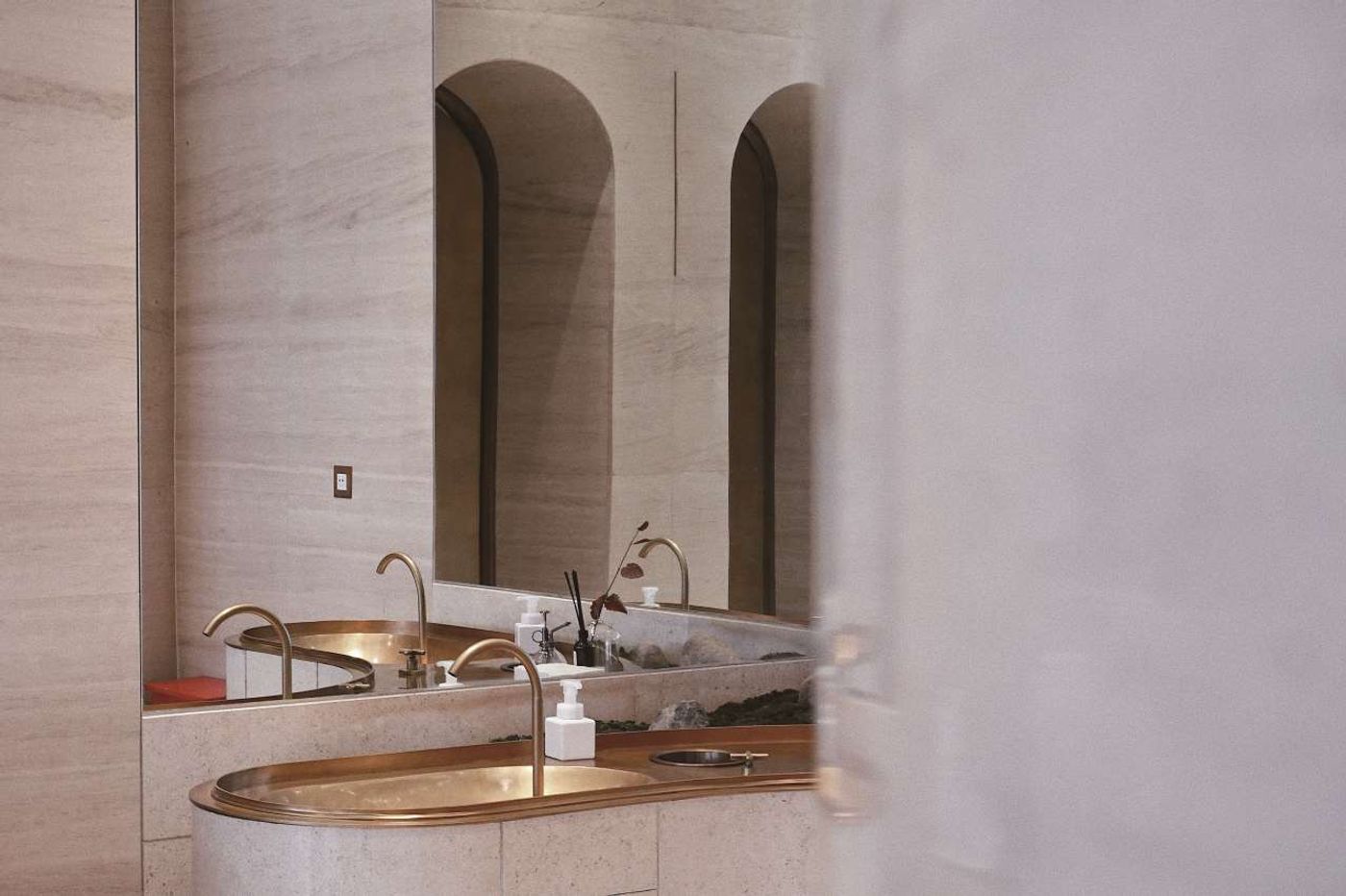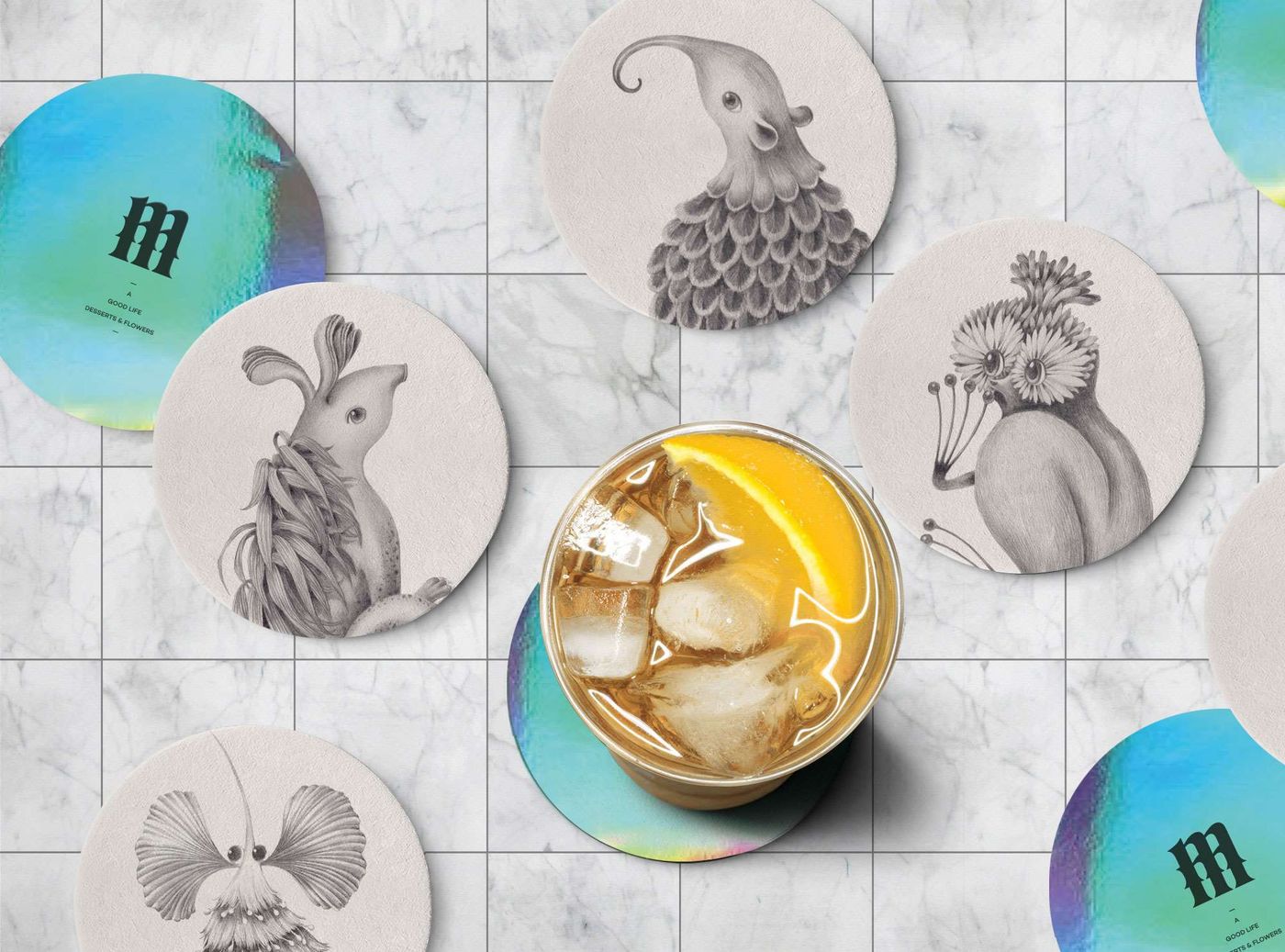
Contemporary yet Magical: MIMO Teahouse in Xiamen, China
Words by Yatzer
Location
Xiamen, China
Xiamen, China
Location
Conceived as a modern day teahouse, MIMO is an all-day venue in Xiamen, China, that channels the social and cultural imprint of Chinese tea culture in a contemporary environment of polished sophistication. Designed by Shenzhen-based creative consultancy VBN, who were responsible for everything from its interior and graphic design to its brand identity, MIMO combines speciality tea and coffee with a fine-tuned dining experience that includes New York-style all-day breakfasts, an Asian-inspired light lunch menu and cocktails.
Closely associated with literature, the arts, philosophy and Buddhism, tea drinking has been a constituent part of Chinese culture as far back as the 3rd century. Teahouses, which appeared during the same time, flourished as public places for social interaction, relaxation and entertainment, as well as scholarly discourse. VBN has drawn from China’s multifaceted teahouse culture, to design a welcoming space where patrons can enjoy a cup of tea or a light meal as well as take part in a vibrant social environment underpinned by regularly invited artists, exhibitions, and performances.
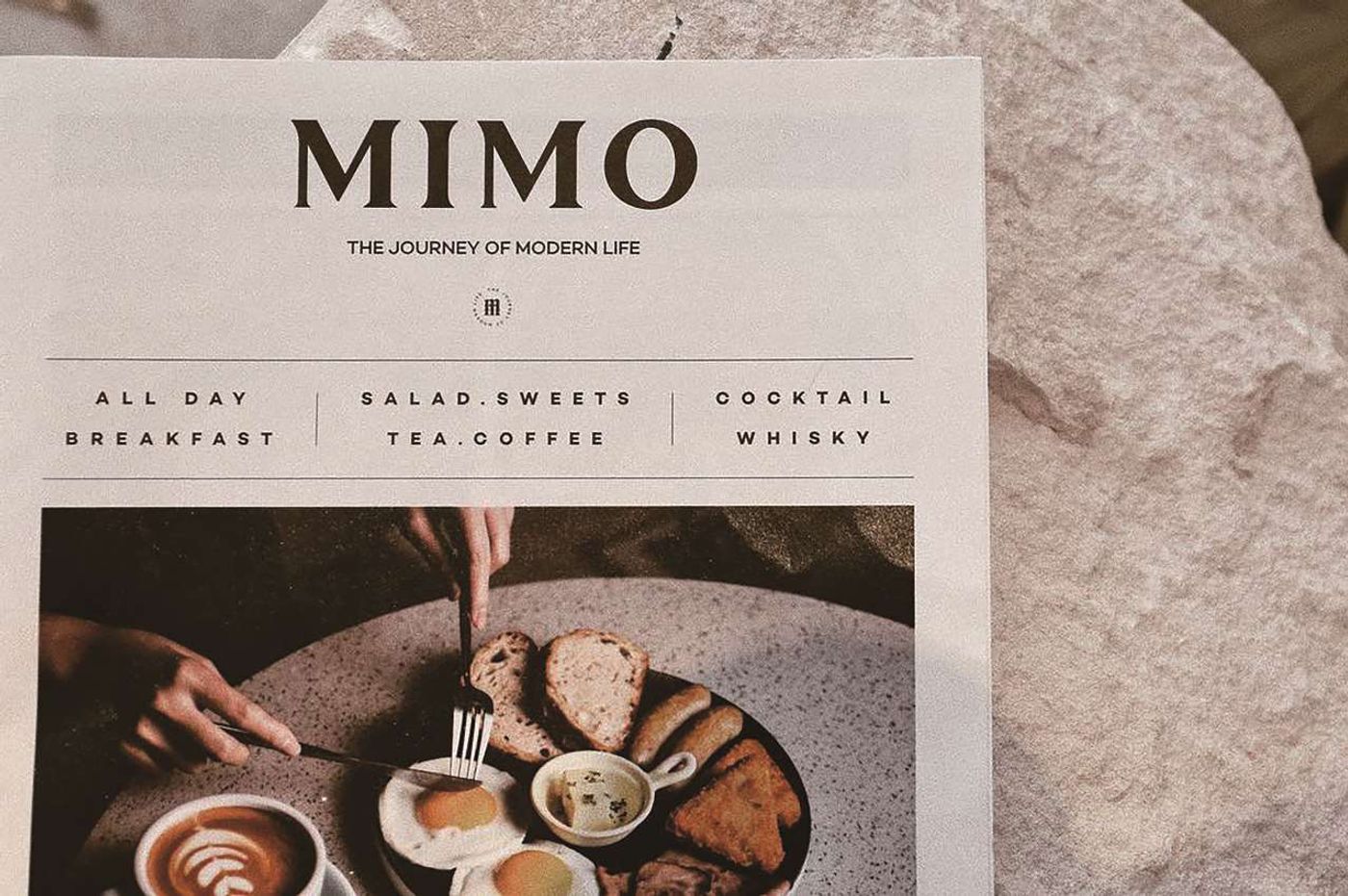
Photo by Venco.
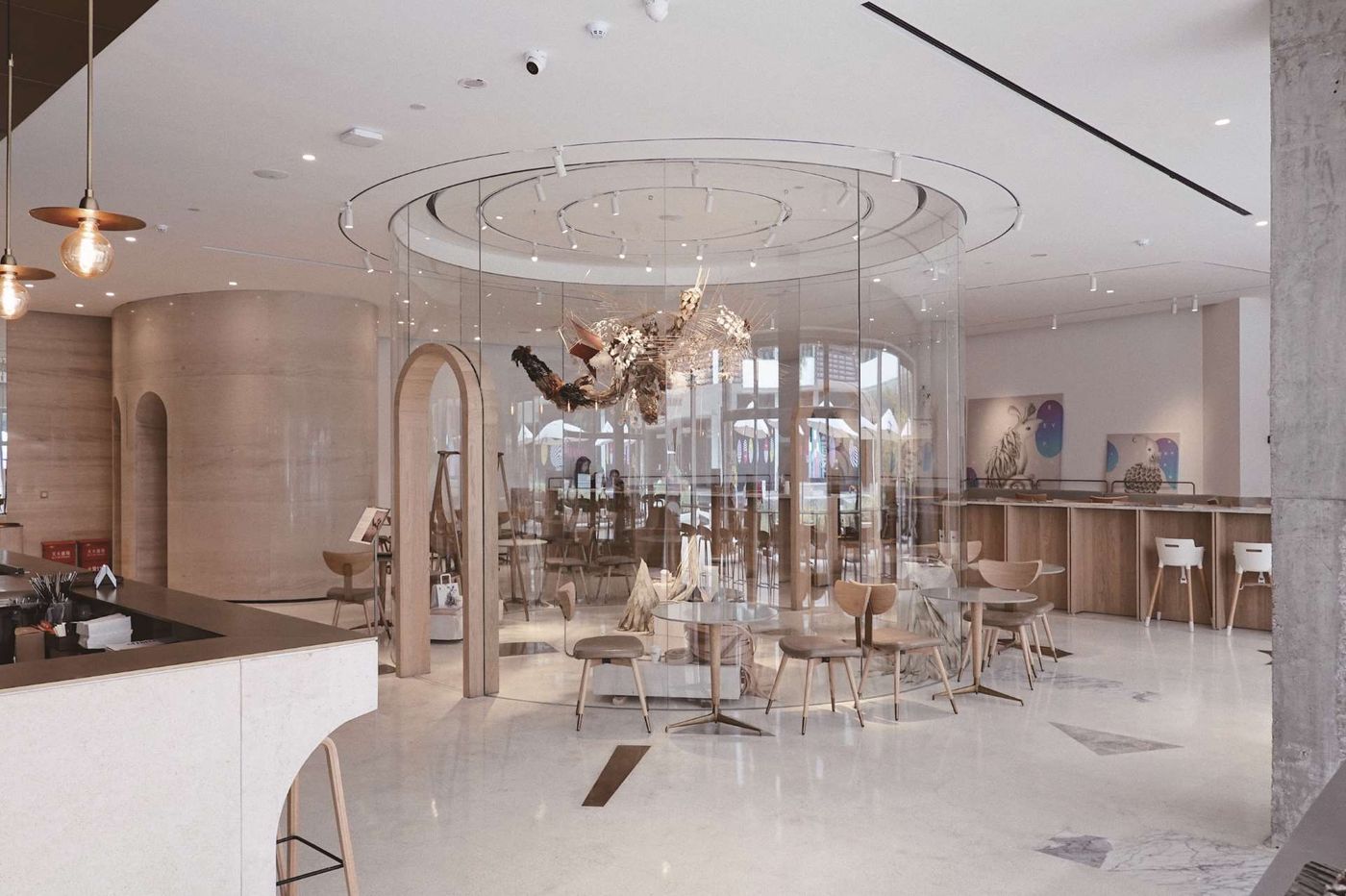
Photo by Venco.
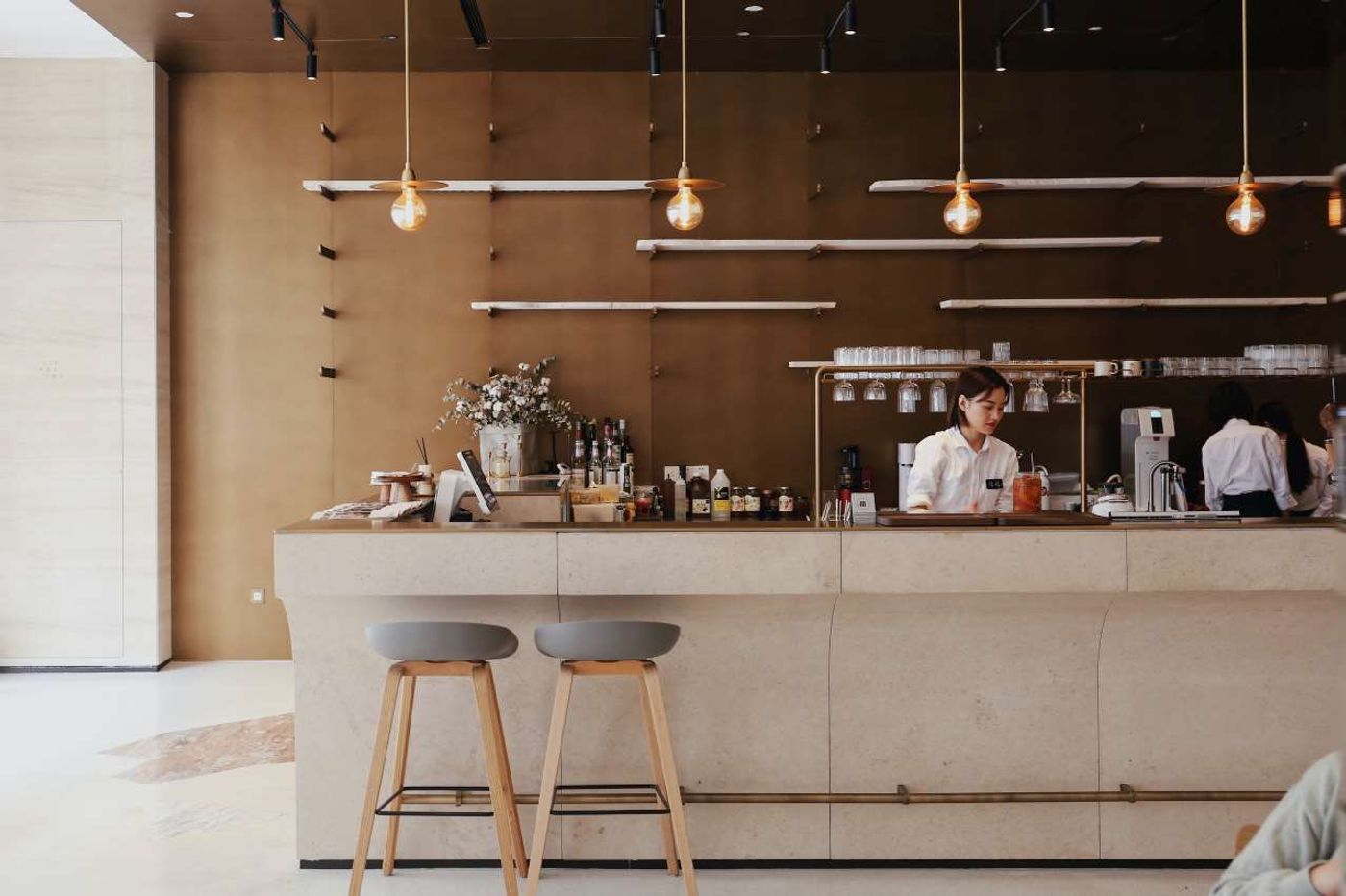
Photo by Venco.
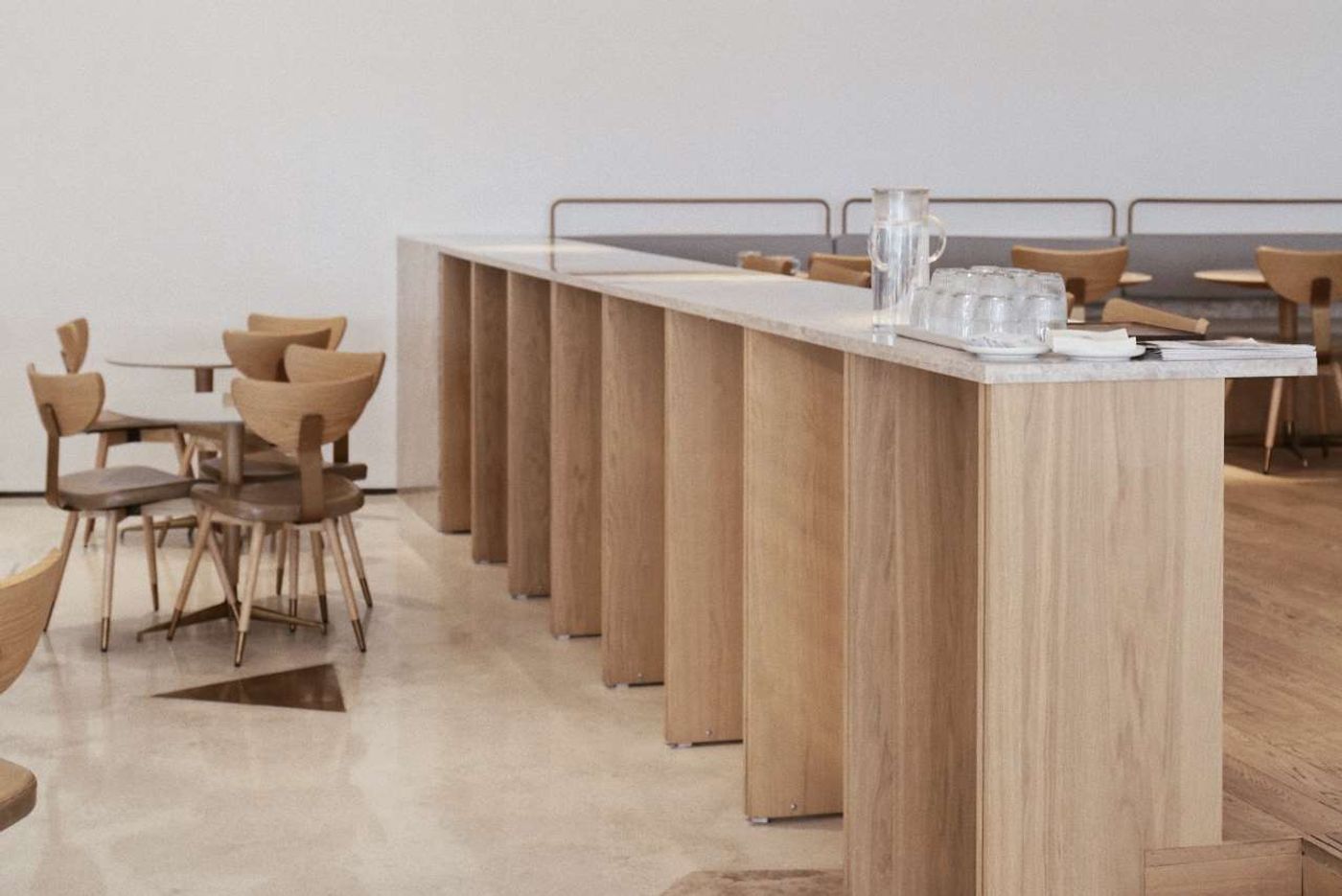
Photo by Venco.
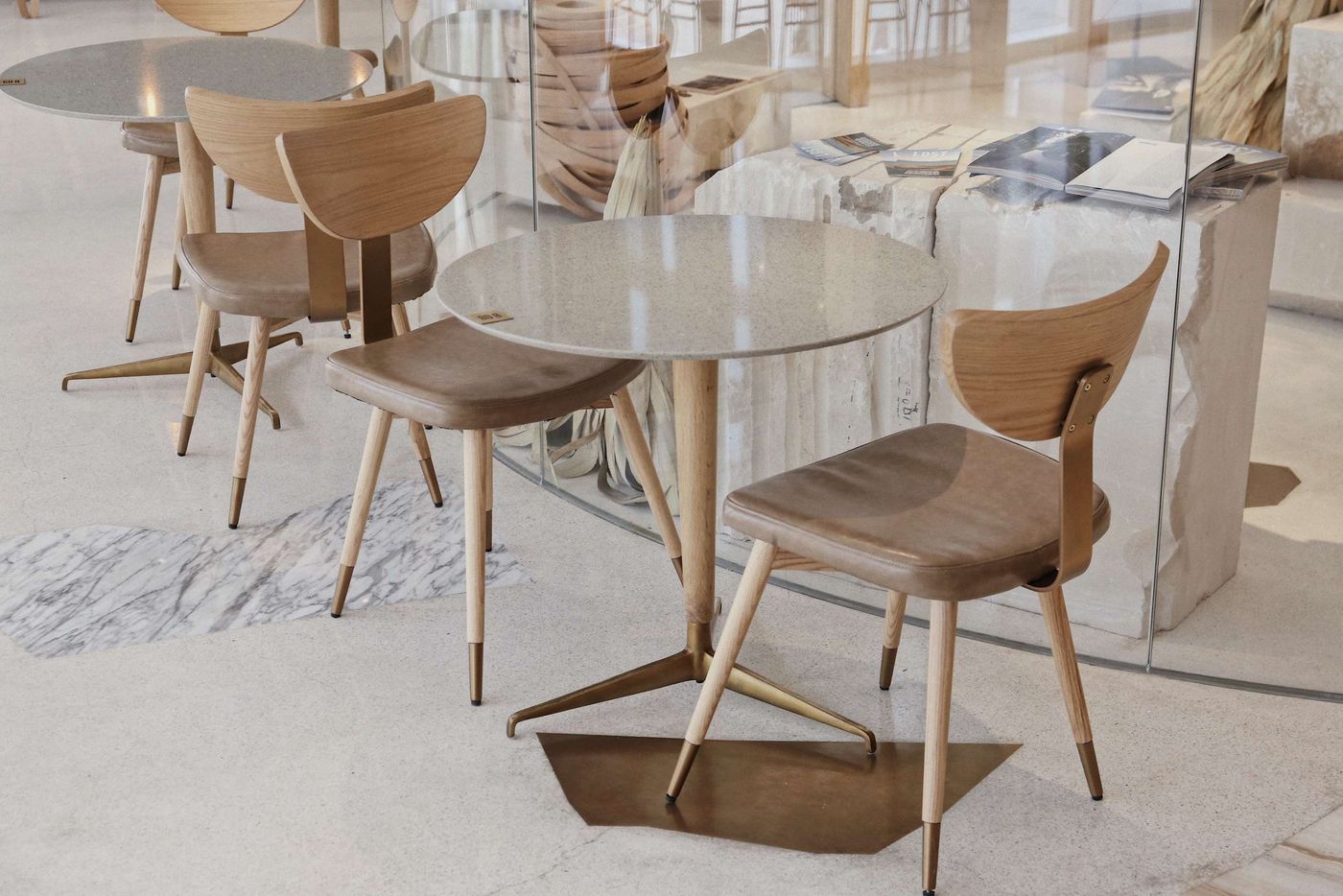
Photo by Venco.
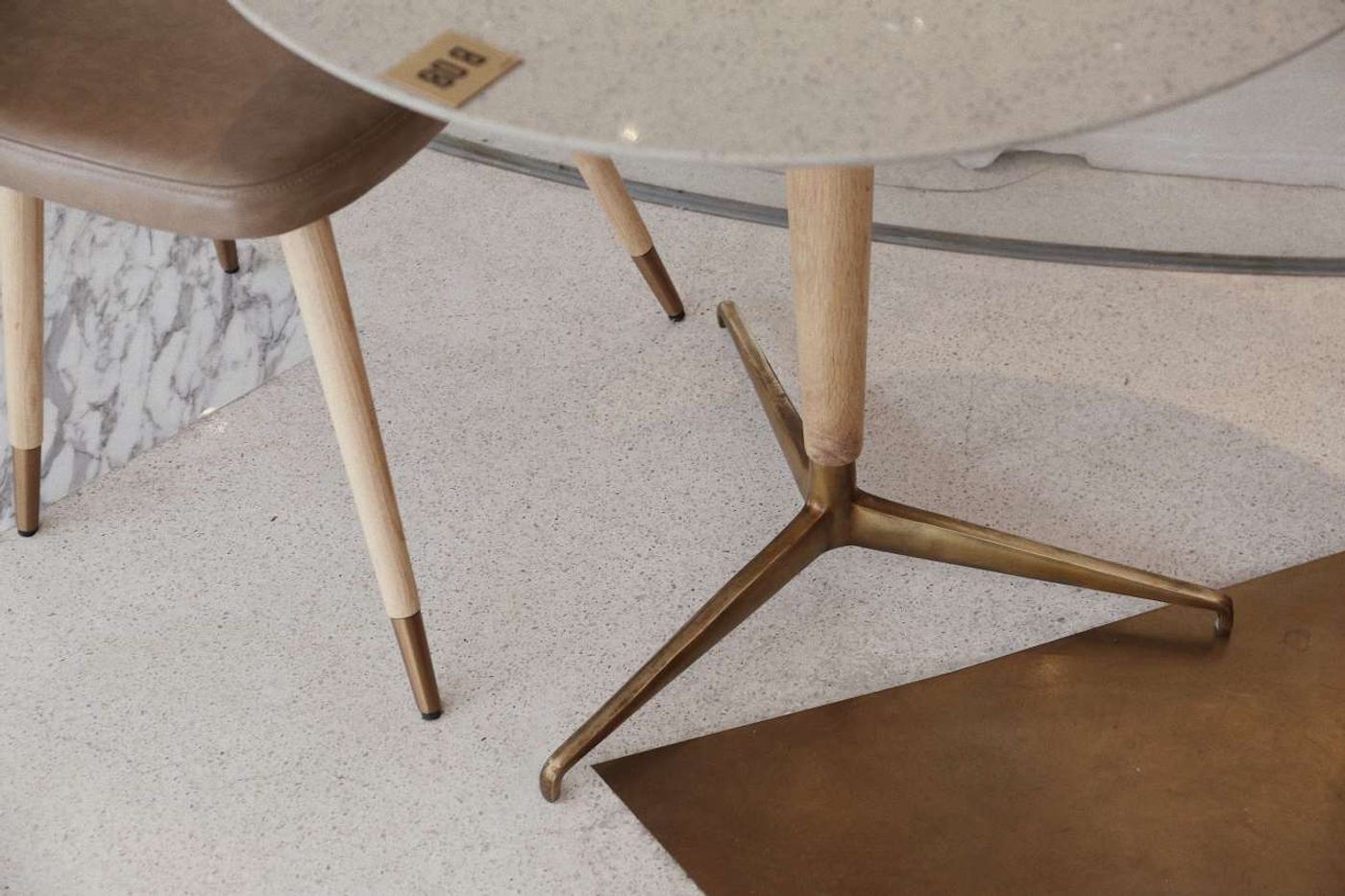
Photo by Venco.
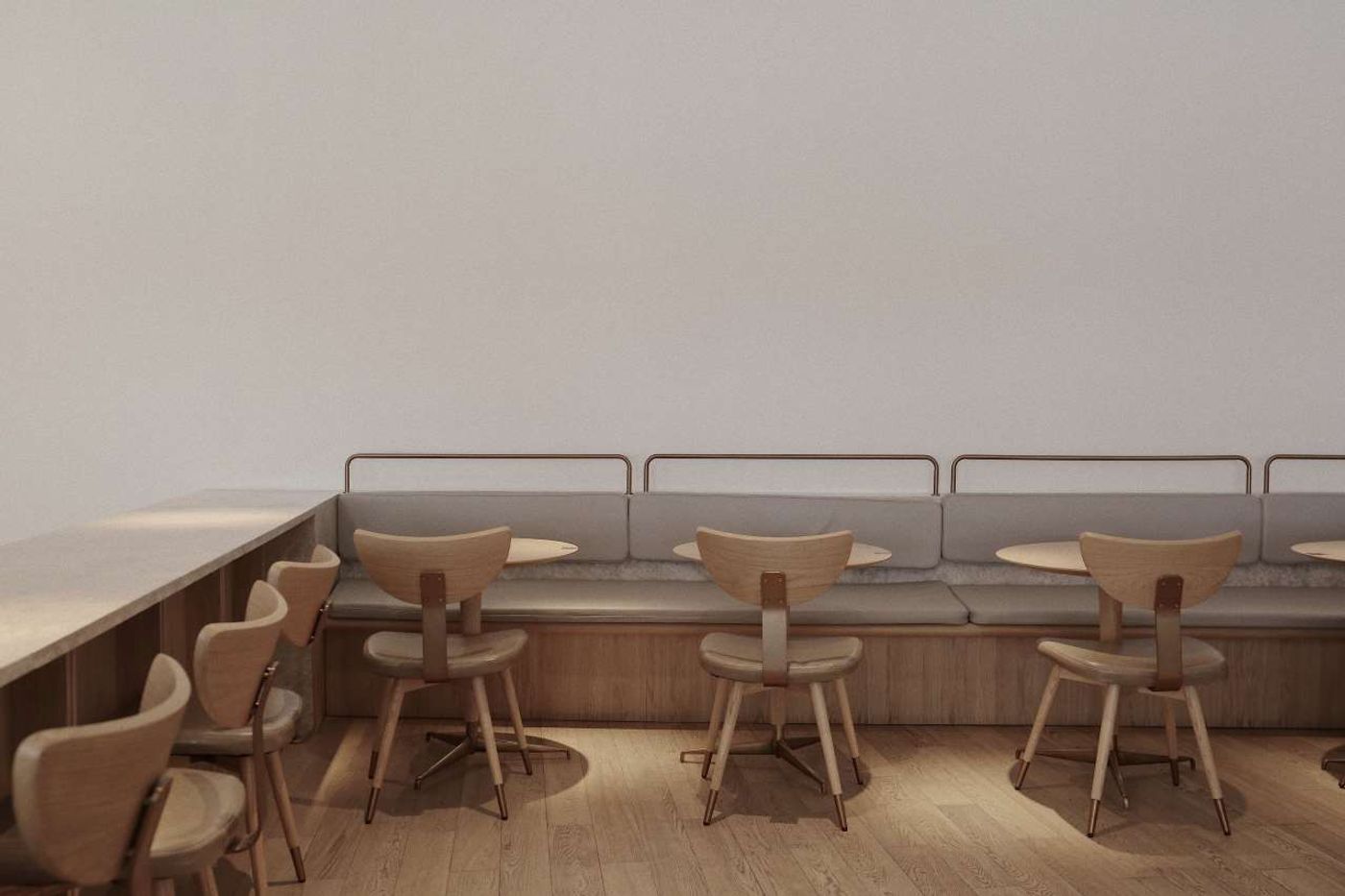
Photo by Venco.
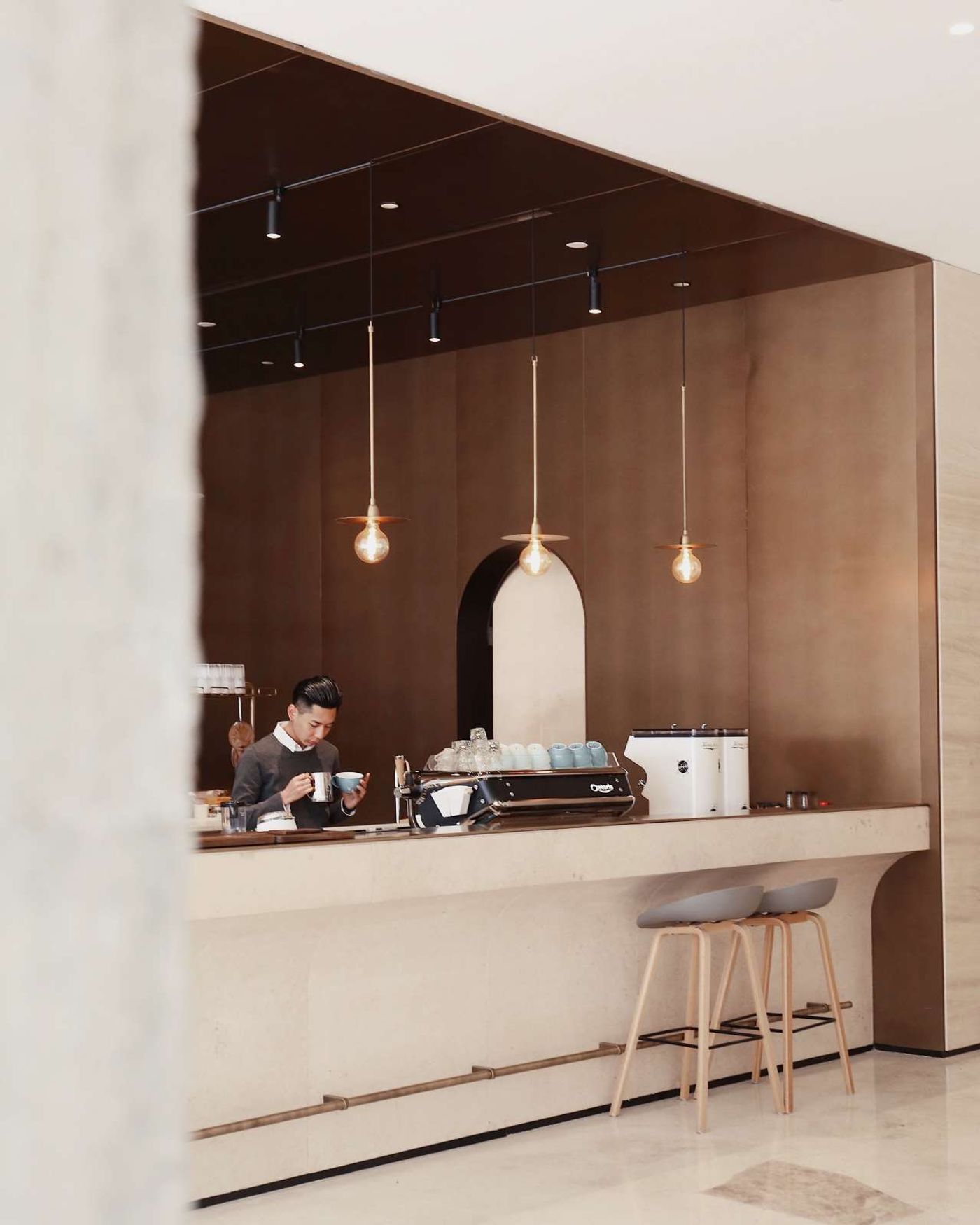
Photo by Venco.
The restaurant’s interior design is characterized by a polished yet raw aesthetic that the designers call ‘wild nature in concrete jungles’. Enveloped in polished stone surfaces and smooth timber panelling, the décor’s sleek elegance is enriched by a series of rough, natural textures harmoniously integrated into the design: wooden blocks supporting a dining counter, the building’s exposed concrete columns that have been left untreated, and coarse stone blocks that serve as displays. Likewise, an elemental architectural language of arches and cylinders is subtly juxtaposed with abstract geometrical shapes in the terrazzo-like patterned stone flooring. The marriage of the natural and the manmade that such textural and pictorial juxtapositions represent not only imbues the space with a unique elegance but also poetically traces the tea’s journey from fresh leaves to cultural institution.
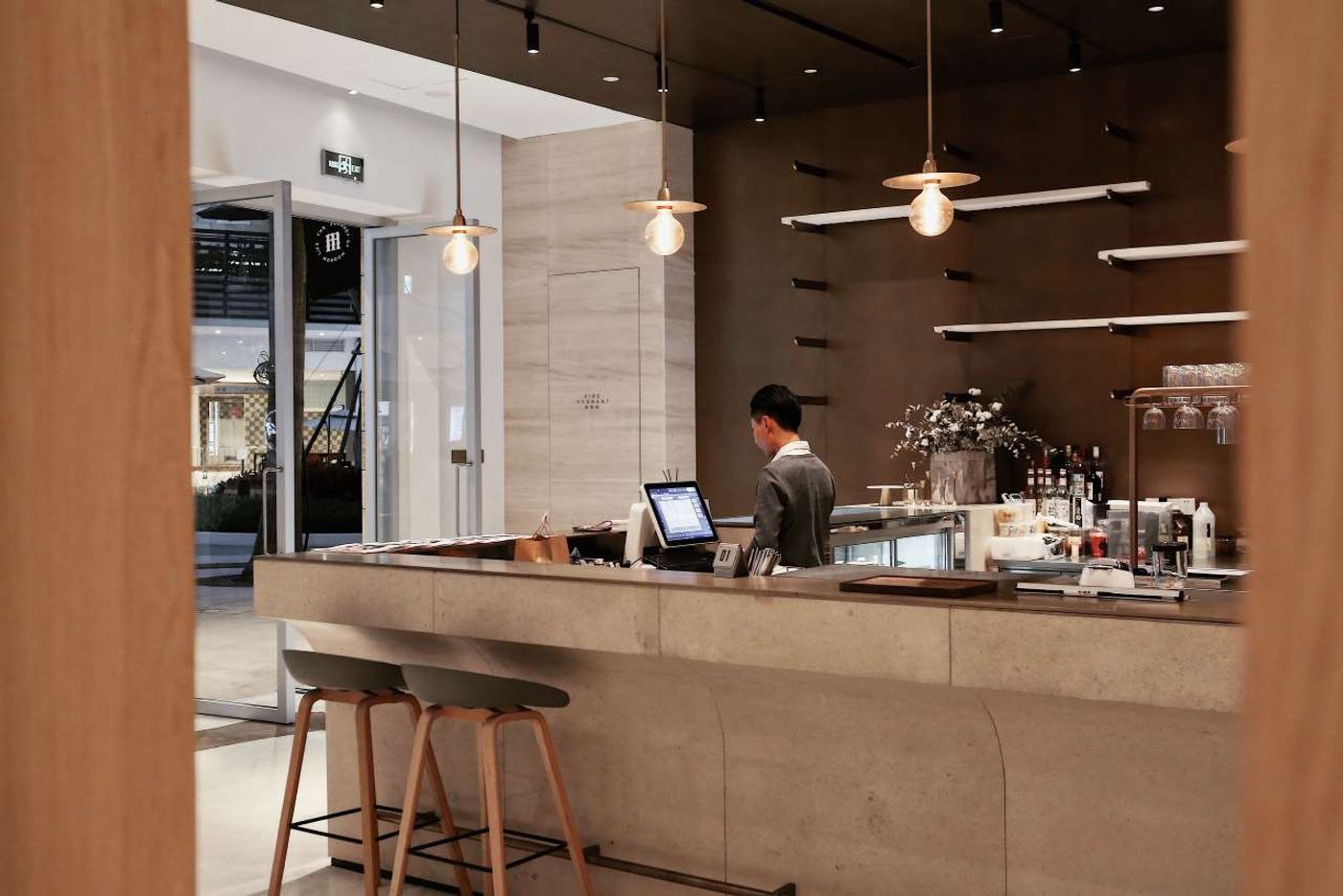
Photo by Venco.
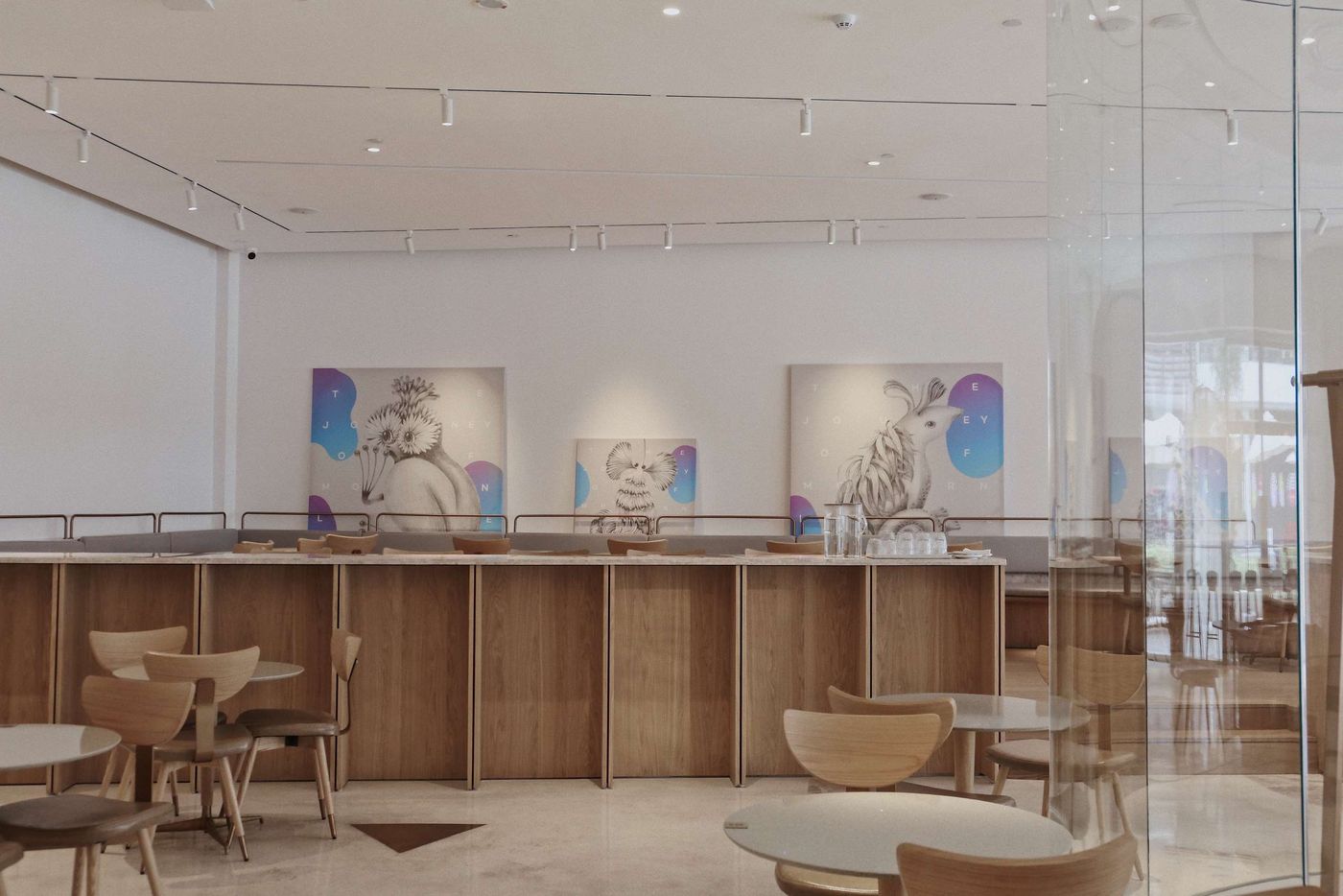
Photo by Venco.
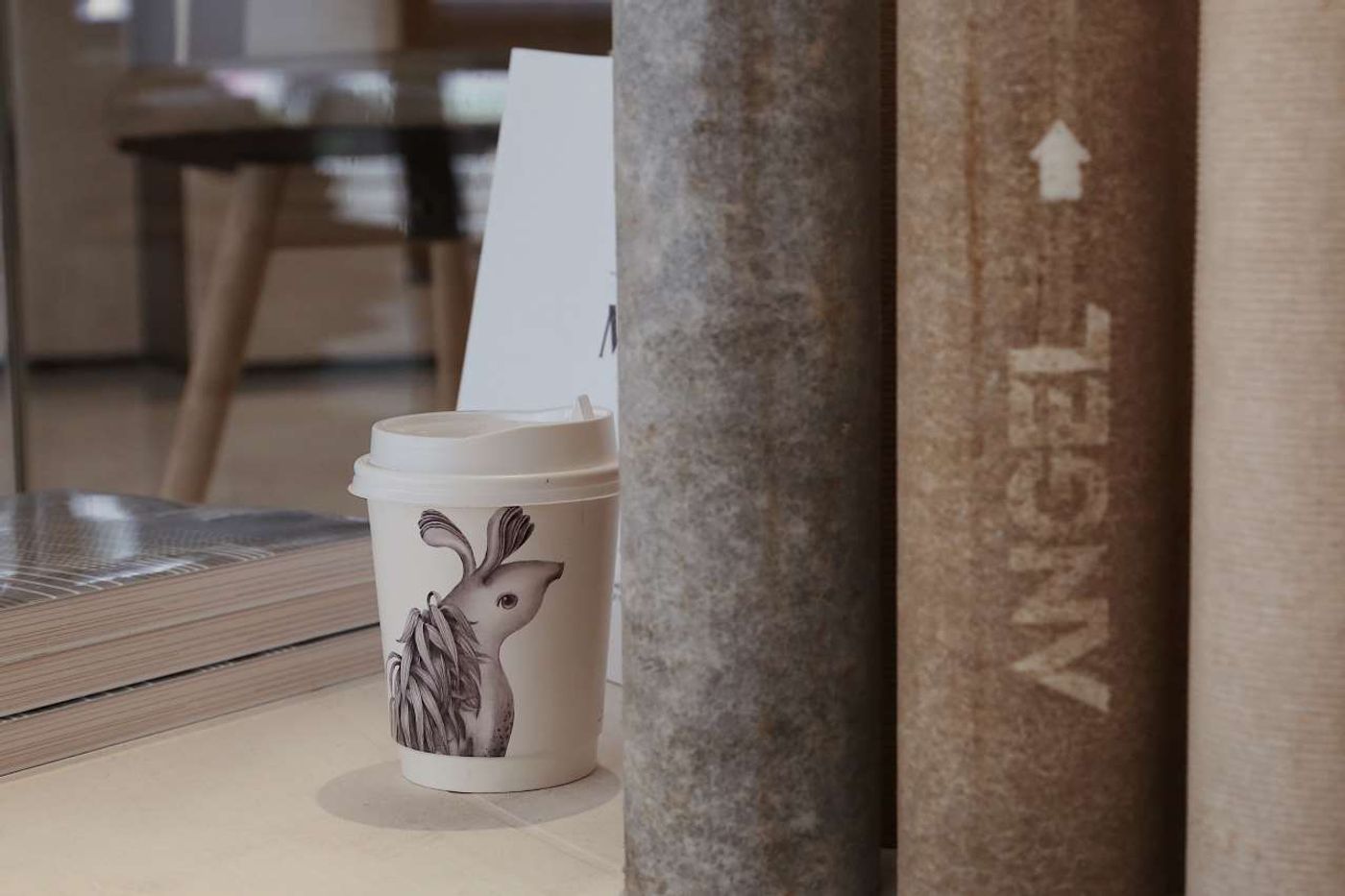
Photo by Venco.
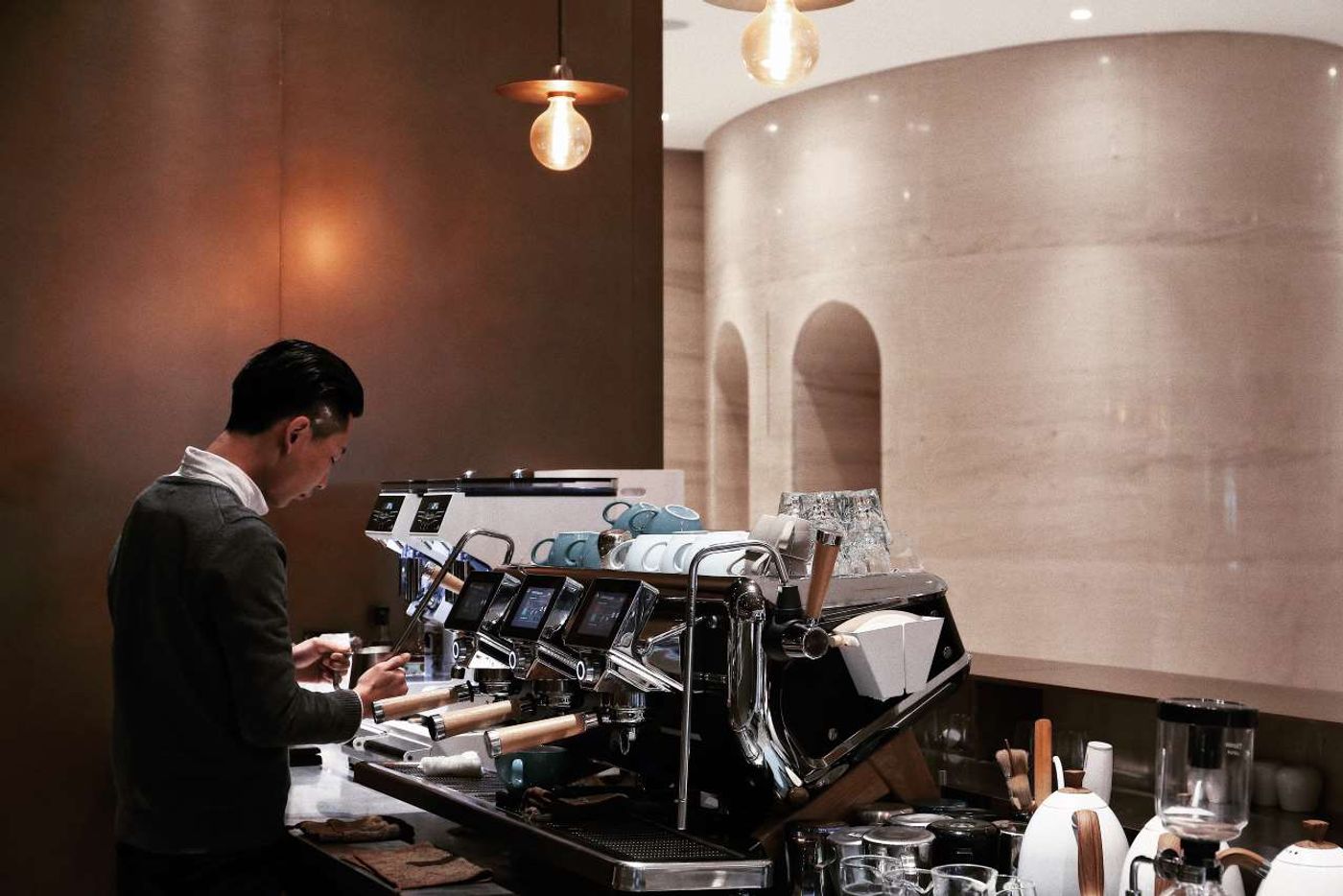
Photo by Venco.
MIMO’s interior design is intricately linked with the brand identity that VBN developed based on the concept of ‘City Elves’. From paper cups and coasters, to graphic paintings on the walls, if you look closely, playful elf figures populate the restaurant. But probably the biggest clue to their existence is the cylindrical glass house that the designers have prominently placed in the middle of the open-plan space. Conceived as a miniature elf habitat and functioning as an oversized display case and performance space, the glass enclosure contains a series of sculptural compositions constructed out of organic materials that conjure a magical realm but also echoed the venue’s natural vs. manmade dialectic. The display also brings to mind various rare and precious plants which were a popular teahouse decoration during the Song Dynasty, a reminder that despite its contemporary appearance, teahouses like this go back a long way.
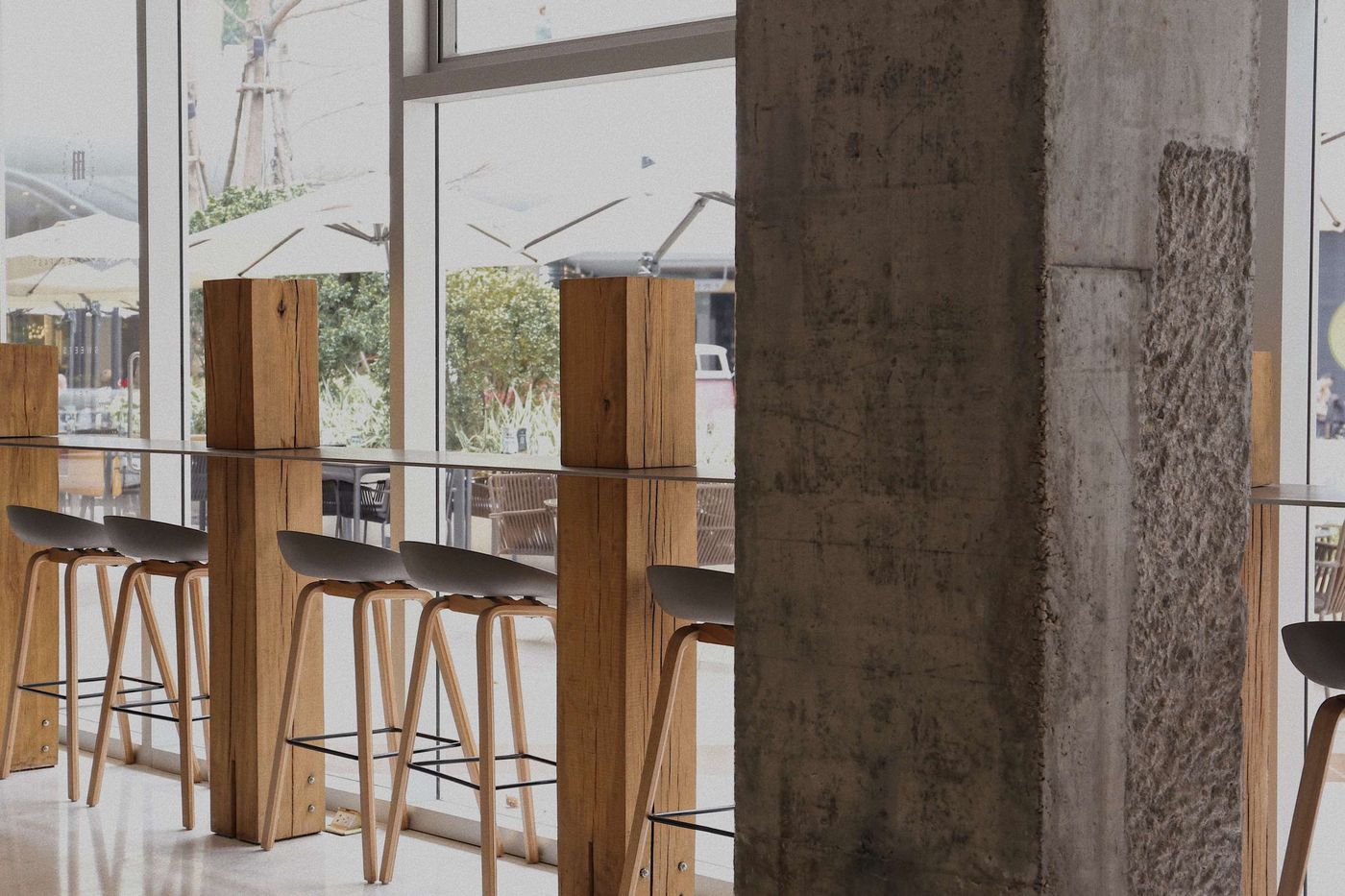
Photo by Venco.
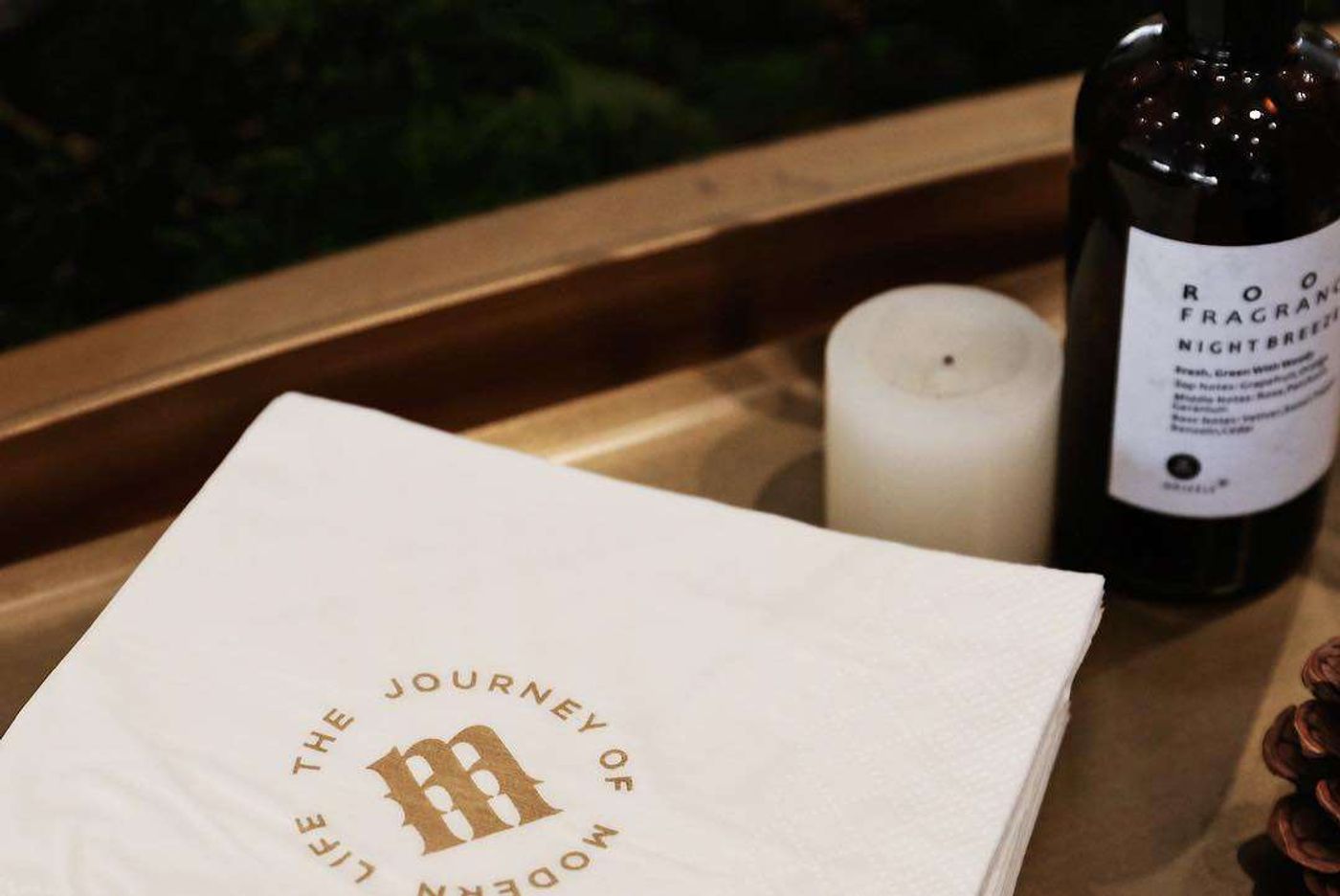
Photo by Venco.
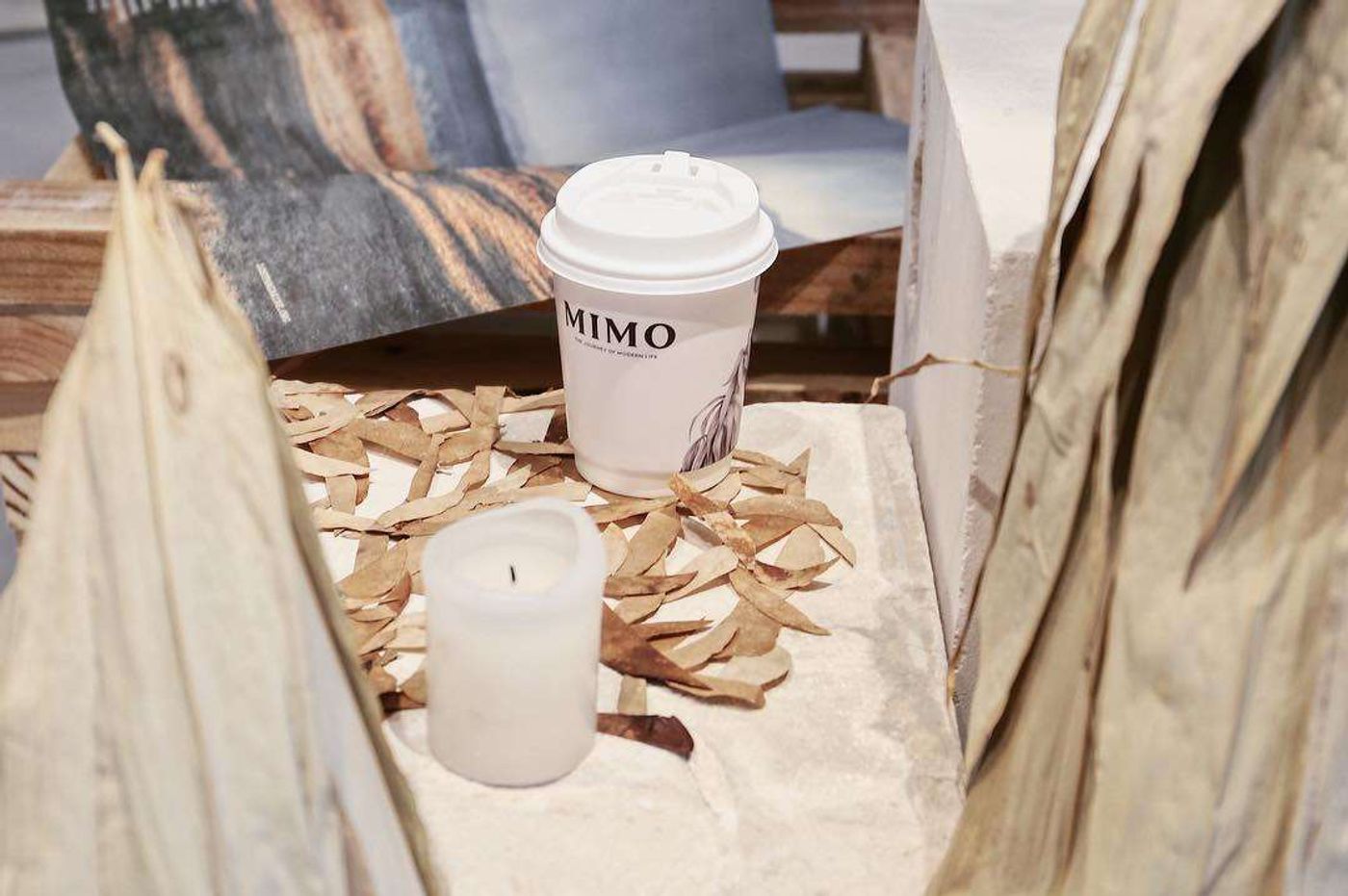
Photo by Venco.
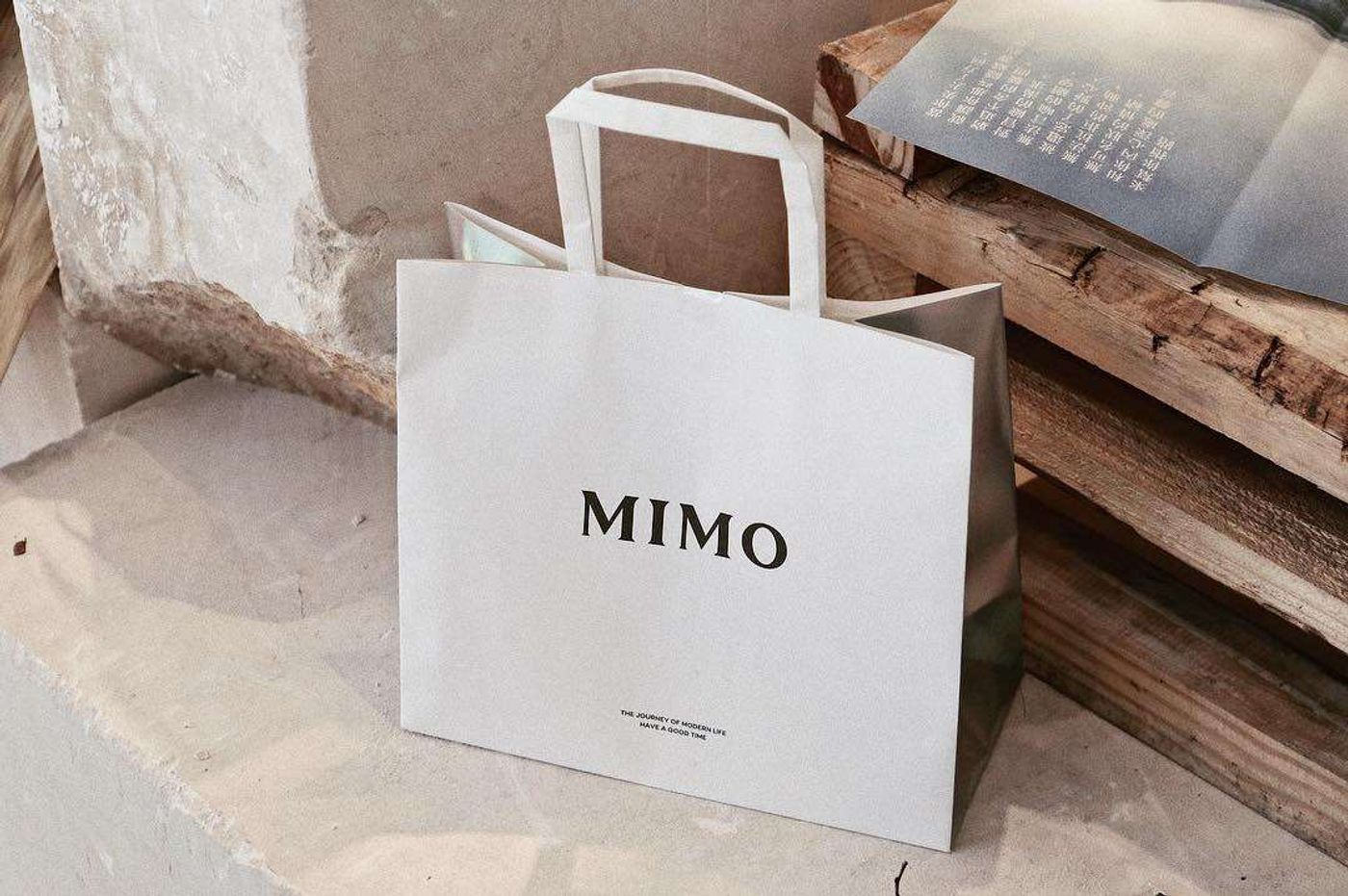
Photo by Venco.
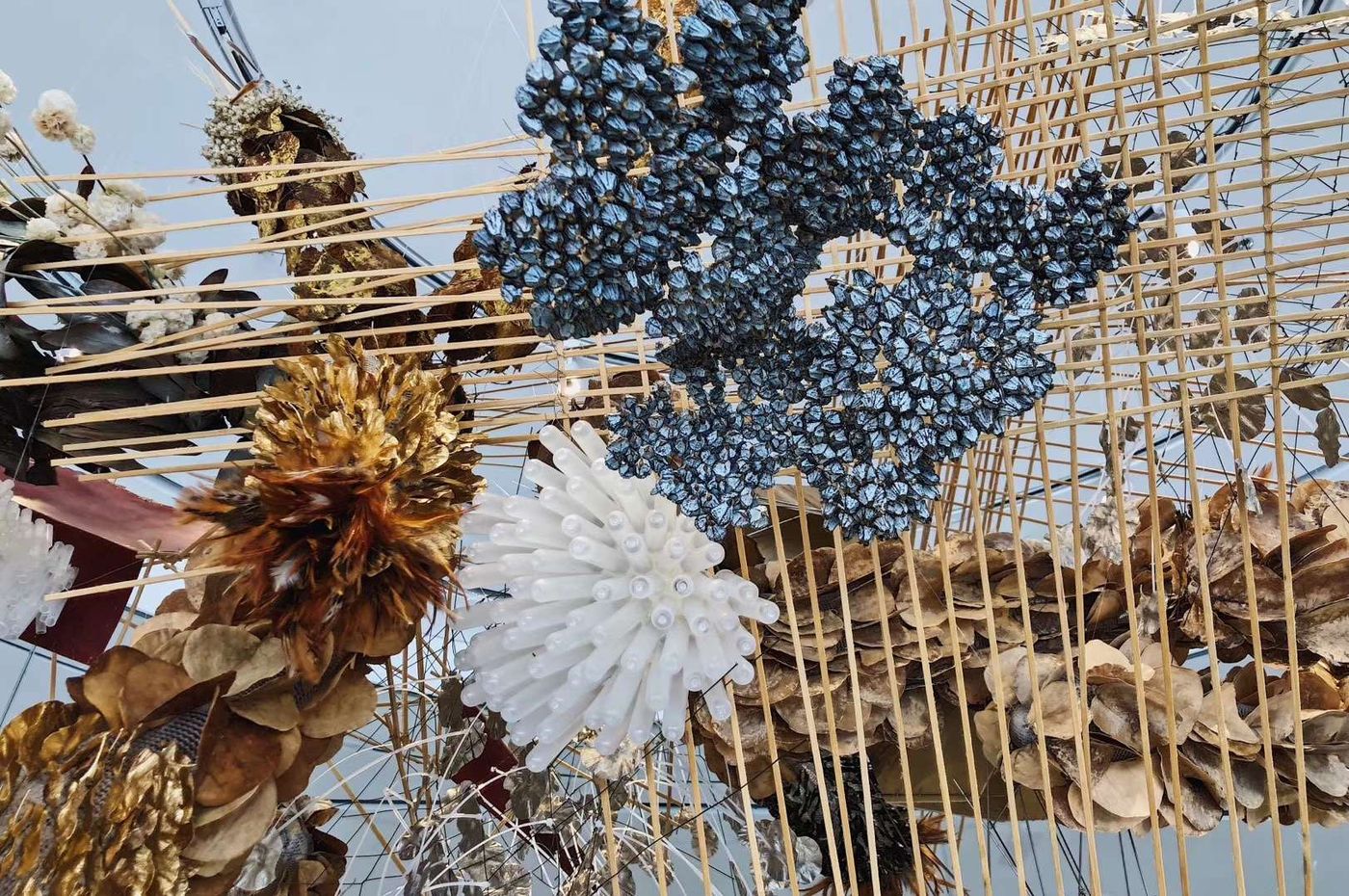
Photo by Venco.
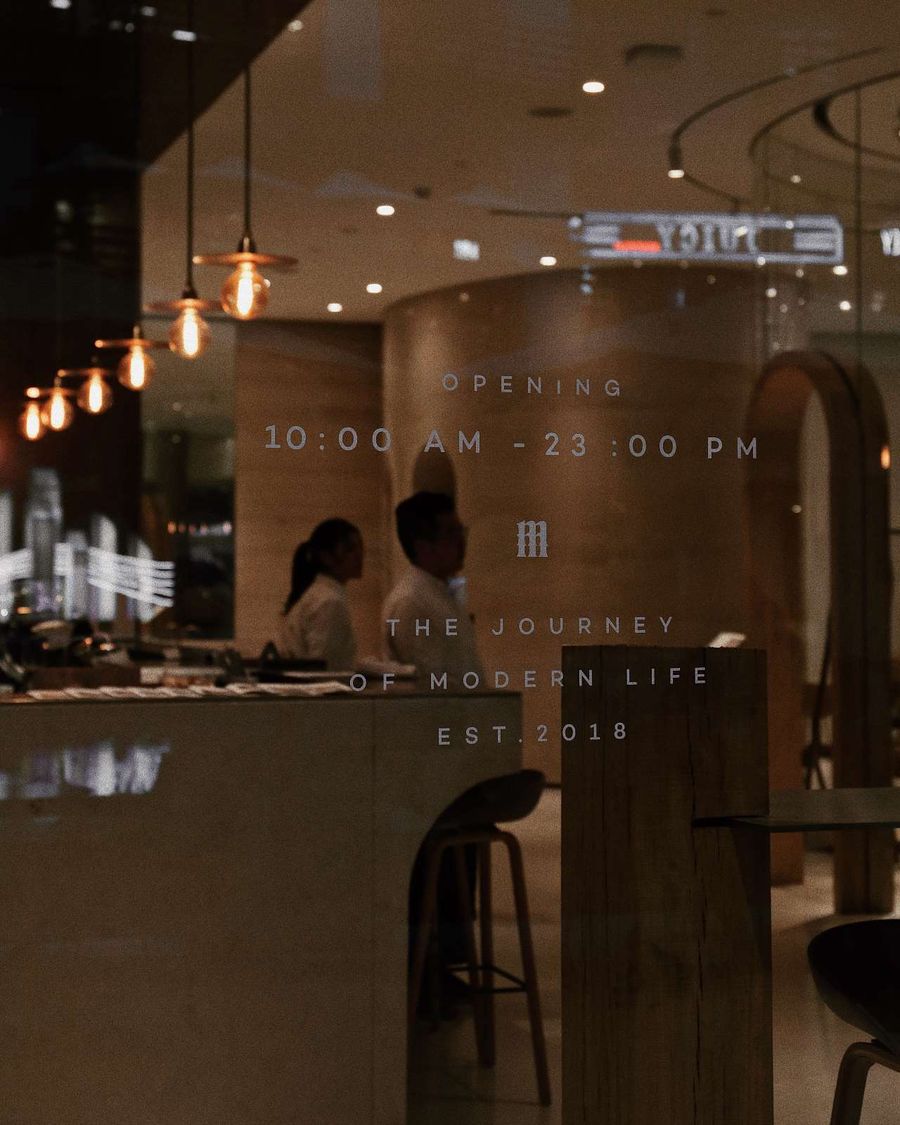
Photo by Venco.
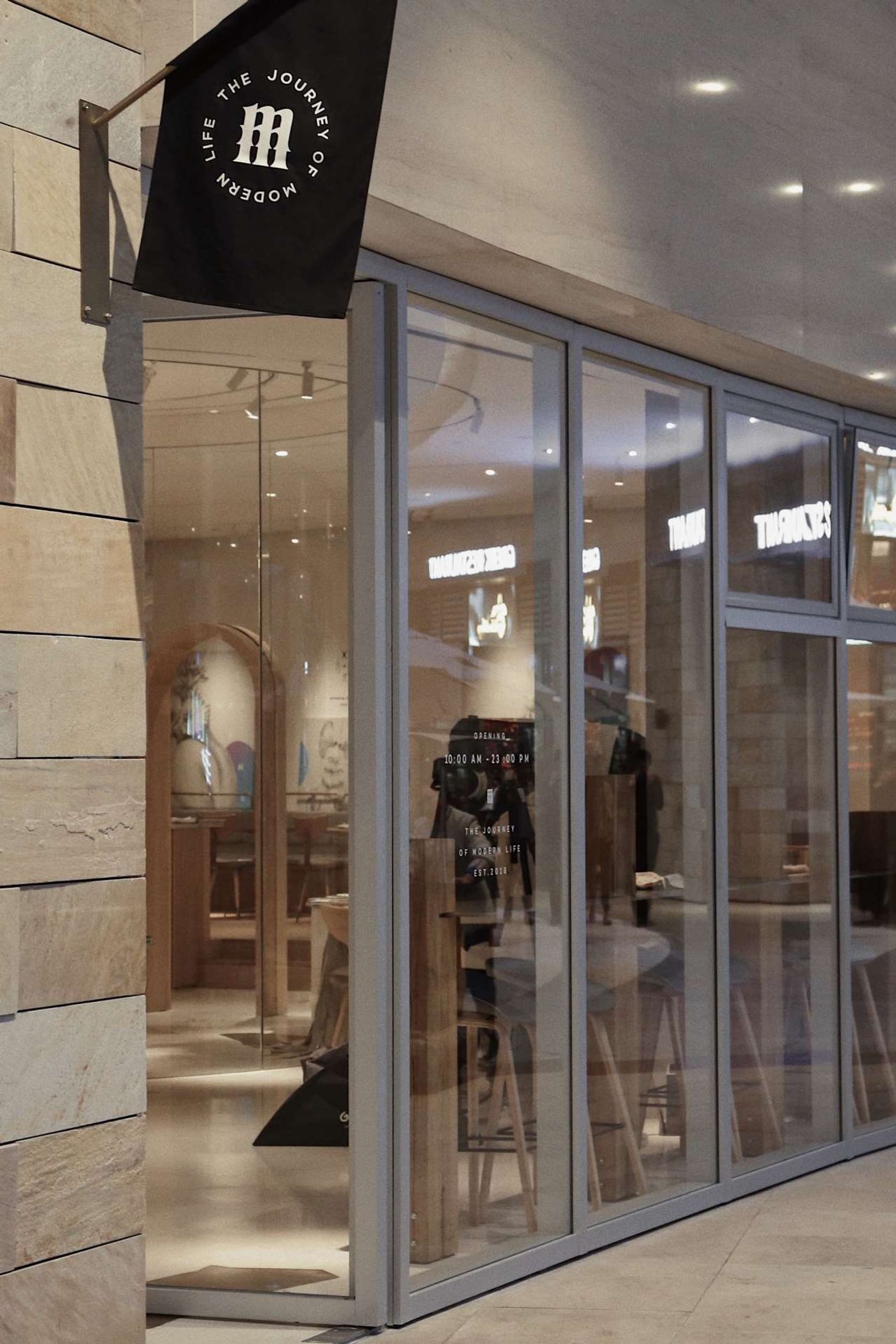
Photo by Venco.
